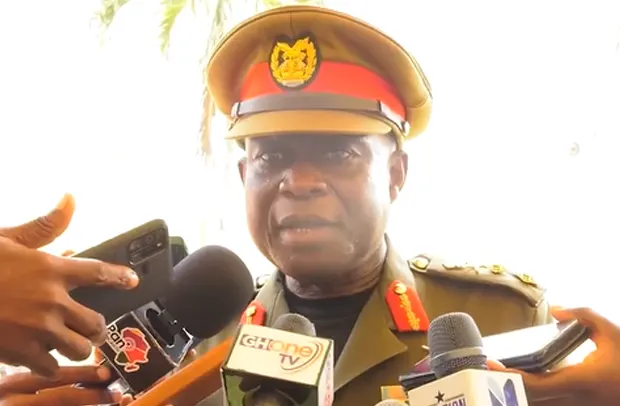Major Gen Dr Emmanuel Wekem Kotia
Parliament has passed the Ghana Boundary Commission Bill, 2024 into law, repealing the existing Act 795 of 2010.
The bill, which was passed under a Certificate of Urgency, is expected to address significant gaps in the previous legislation and align Ghana’s boundary management framework with international best practices.
The passage followed intense deliberations by the Committee on Lands and Natural Resources, which collaborated with a winnowing committee comprising members from both sides of the House to fine-tune the bill.
Commissioner-General of the Ghana Boundary Commission, Major General Dr. Emmanuel Wekem Kotia, praised the passage of the bill, and said it marked a significant step forward in modernising the country’s boundary management system.
He said bill 2024 now awaits presidential assent to become law, adding that once enacted, it is expected to empower the Commission to effectively address Ghana’s boundary challenges, secure the nation’s interests, and foster regional collaboration.
Background
The Ghana Boundary Commission Act, 2010 (Act 795), established the Ghana Boundary Commission to negotiate, determine, and demarcate Ghana’s land and maritime boundaries.
However, over the past 14 years, the Act has been found lacking in provisions necessary for effectively addressing the country’s evolving boundary and security challenges.
Challenges with funding, the absence of critical offices such as a Commissioner-General, and the limited scope of the governing body were identified as key factors hampering the Commission’s efficiency.
The new legislation aims to resolve these issues while reflecting international standards and practices.
Purpose of the Bill
The Ghana Boundary Commission Bill, 2024, seeks to repeal Act 795 and establish a more comprehensive legal framework for the Commission, as well as enable the Commission to demarcate Ghana’s international land boundaries, delimit maritime and airspace boundaries, and secure the nation’s territorial sovereignty.
It also seeks to provide mechanisms for resource mobilisation, including internally generated funds (IGF), to address funding challenges, and enhance inter-agency collaboration, particularly with the Lands Commission, to ensure efficient boundary management.
By Ernest Kofi Adu, Parliament House


